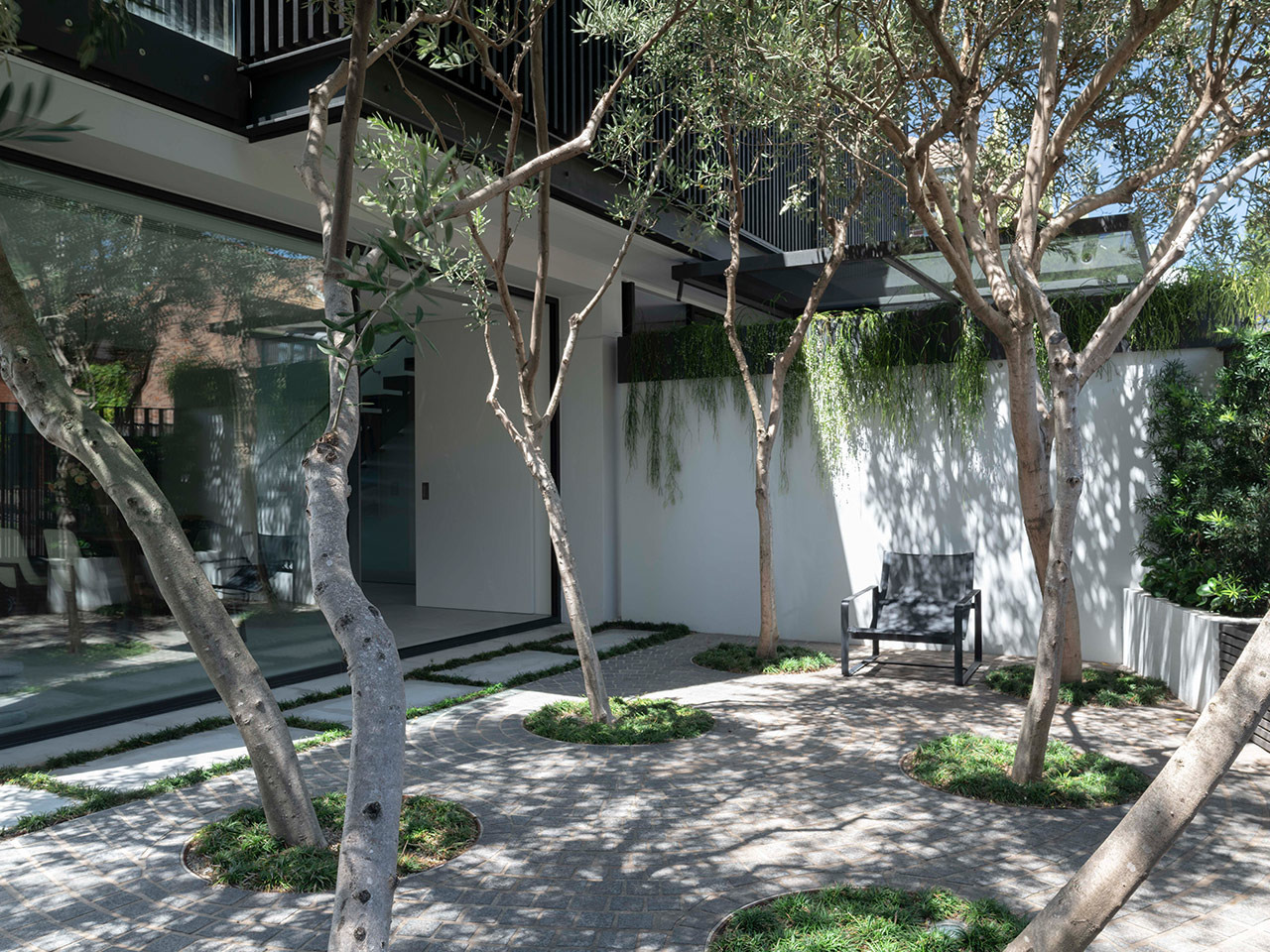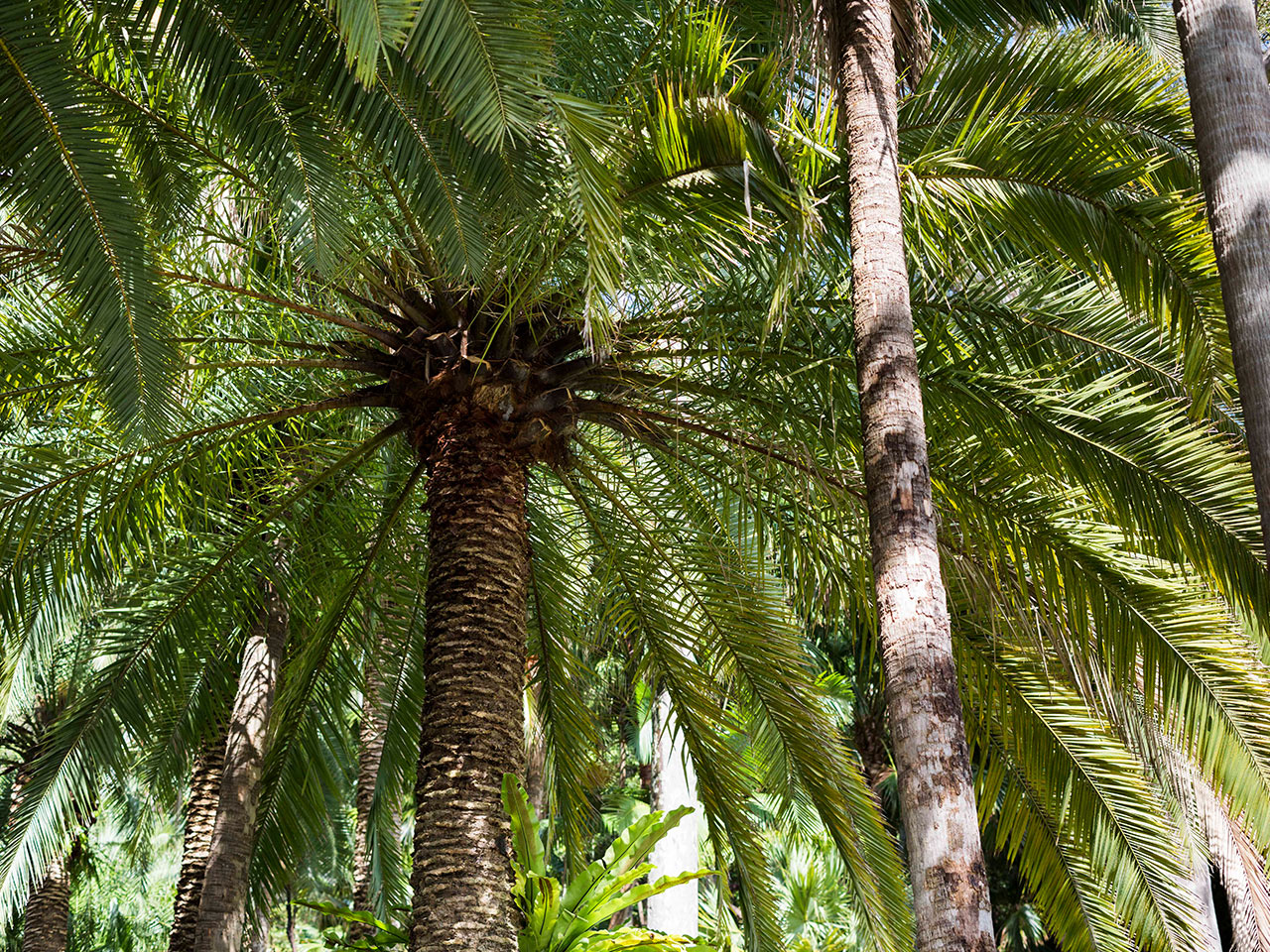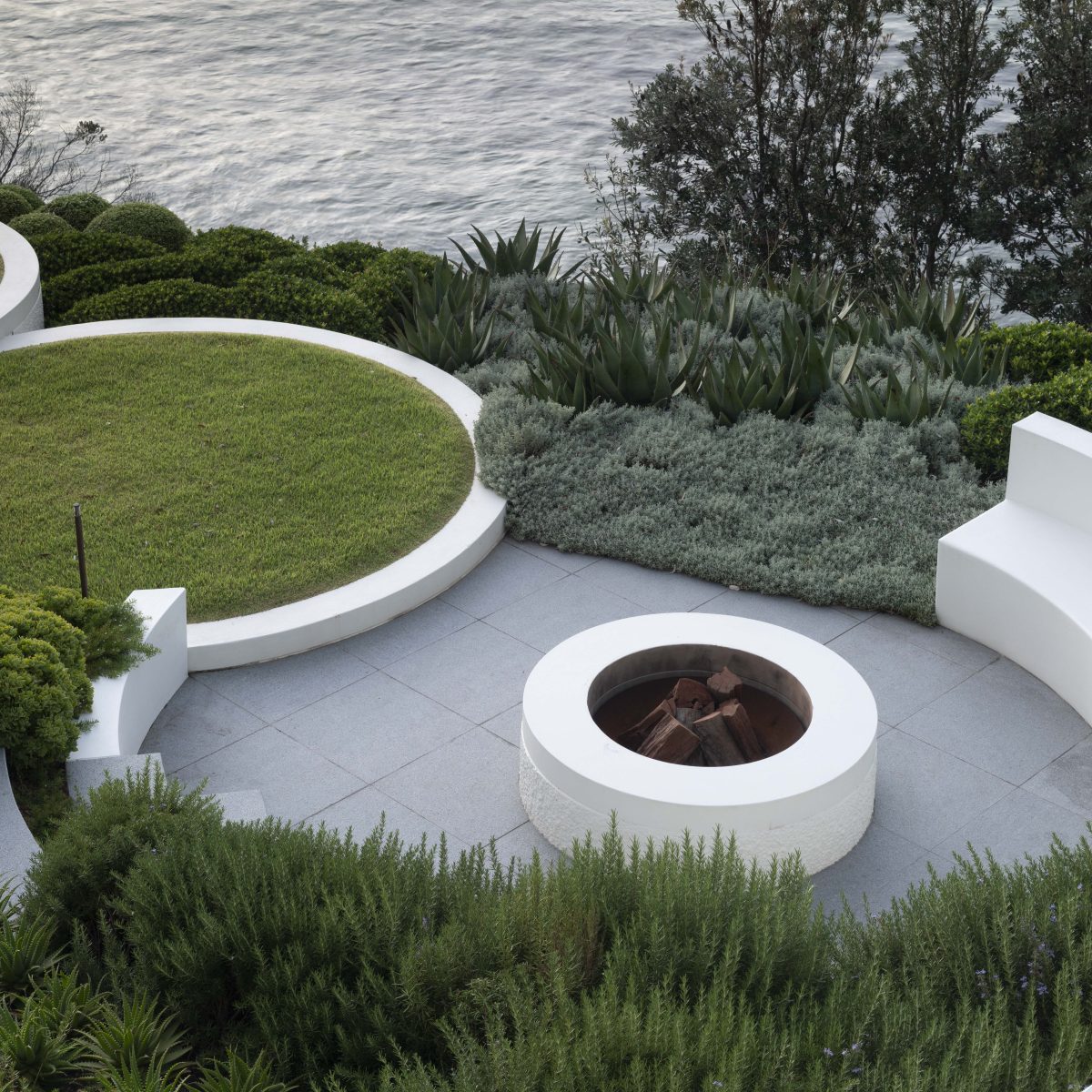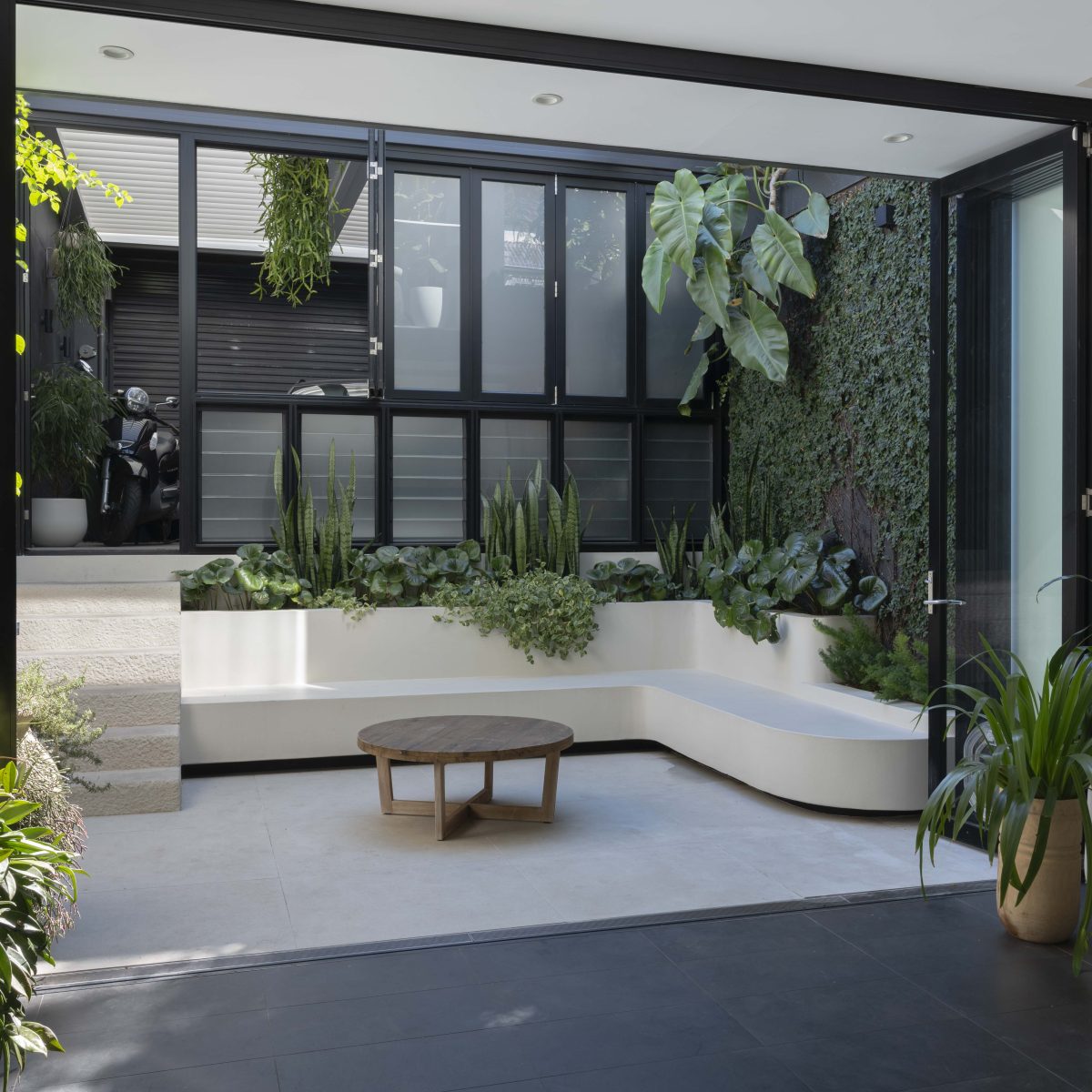Landscape architect Nicole from the Secret Gardens team says most of us understand that trees play a crucial role in our lives, even if we can’t quite put a finger on it.
“There are so many reasons why trees are important. They provide shade, clean air, they are aesthetically pleasing and they help to negate urban heat island effects.”
“There are so many reasons why trees are important,” she says. “They provide shade, clean air, they are aesthetically pleasing and they help to negate urban heat island effects.
“They also bring a sense of place. I love going to Randwick because of all the fig trees.”
They also increase biodiversity in our environment, attracting insects and providing habitat to birds and mammals in the garden. However, too often homeowners see trees as a nuisance, in the way of plans to further develop their site. Senior landscape designer Henry is only too familiar with this trend.
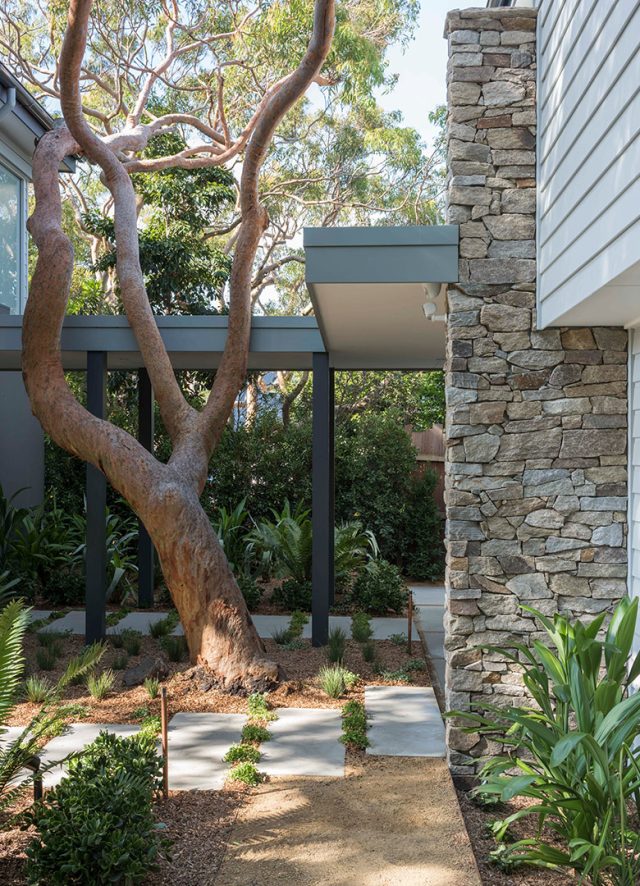
“My parents live in a semi in Coogee and they have kept all the trees in their garden,” he says.
“If you look at Google Maps, all the neighbours have removed their trees (to make way) for garages, My parents’ place is a green island in a sea of grey.”
In our haste to eliminate trees that are in the way of public or private development, what exactly are we missing out on? While block sizes are getting smaller, the houses we’re building on them are not. As trees – and the shade they provide – disappear, temperatures increase. Last year, the ABC reported research by RMIT’s Sustainability and Urban planning program revealed the effect on urban areas was an increase of between four and 10 degrees Celsius hotter than surrounding rural areas. Hotter suburbs mean higher dependency on artificial cooling which, in turn, results in higher energy bills.
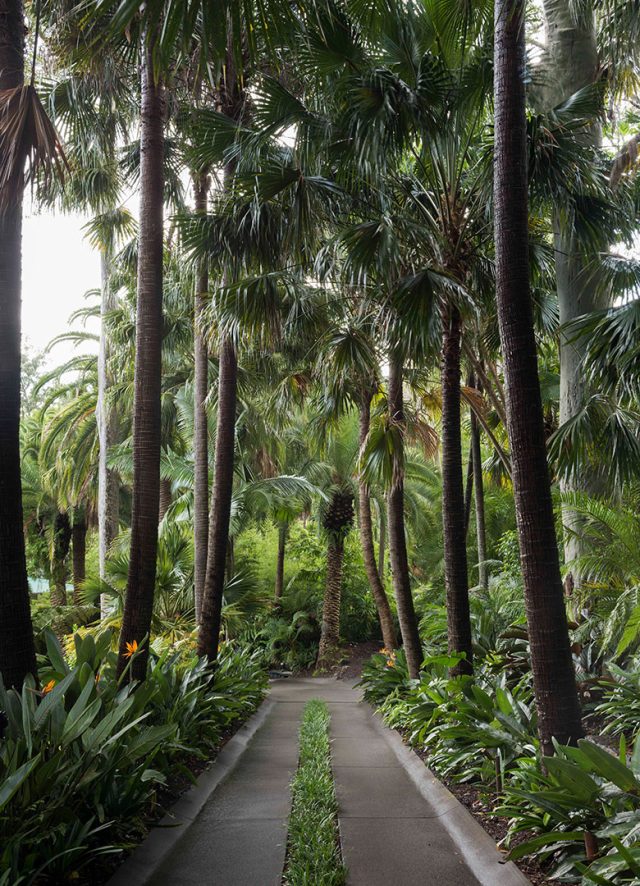
It also has a knock-on effect for trees. Research just released by Western Sydney University has shown that hotter temperatures and more frequent heat waves will result in more tree casualties, including among native tree species. In short, the more we remove trees, the harder it gets for the remaining trees to flourish.
Rather than seeing them as liabilities, Nicole says it’s time trees were once again valued for the significant design and lifestyle benefits they offer home gardens.
“They can really create a sense of place,” she says. “You only need to look at somewhere like Hyde Park for evidence of that. In a private setting, trees can block unwanted lines of sight and they can help frame views by providing foreground.”
Instead of chopping down trees that may have taken decades to grow, mature trees can provide the structure for the garden, offering an immediate sense of permanence, even for a newly installed garden. It’s a particularly useful strategy where the house has undergone major building work as well.
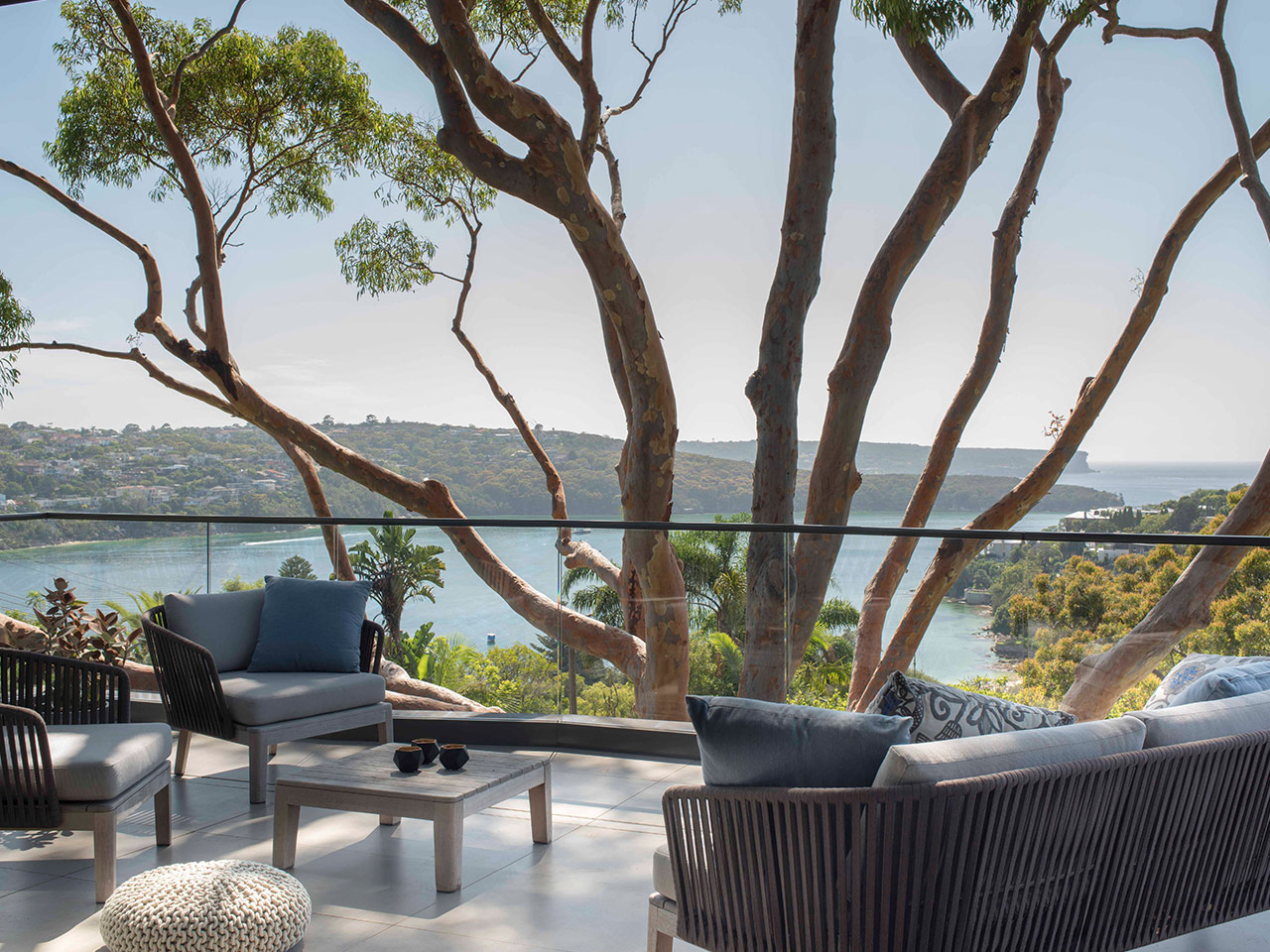
While he has never questioned the value of trees from a design and environmental perspective, Henry says the best selling book by Peter Wohlleben, The Hidden Life of Trees: What They Feel, How They Communicate – Discoveries from a Secret World, has been a game changer. Based on research in Europe and Canada, it shows that we are only just beginning to understand how trees function, communicate and even form community.
“I knew a little about the interconnectivity through trees but after reading the book about how trees talk or communicate with each other through their roots, it revealed more complexity. It’s fascinating,” he says. “These relationships redouble the importance of our old growth forests, our national parks and rainforests. It’s not as simple as planting new trees.”
- Before you schedule a tree to be removed, get some professional advice from an arborist or landscaper about how it might be managed or even incorporated into your plans.
- Just because your garden is not big, there’s still scope for a tree. Speak to a specialist about the right species for your backyard.
- A tree won’t just benefit you and your family but the locals, such as birds, possums, bees and bats can make use of it as well.
- Make a maintenance plan. Whether it’s a native species or an exotic tree, judicial pruning will keep it healthy for years to come.
